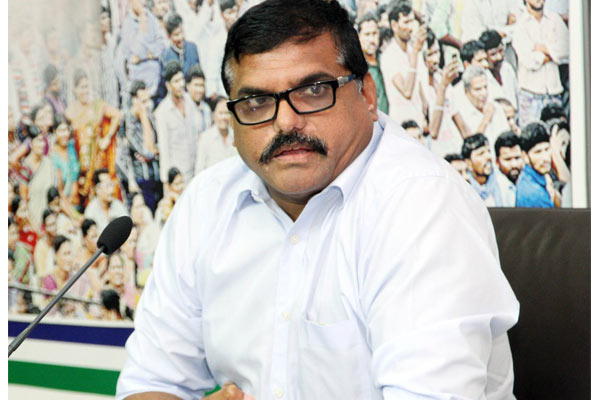Kuwait’s Emir Sheik Sabah Al-Sabah, A Giant of Arab Diplomacy Dies at Age 91
The ruler of Kuwait, Sheikh Sabah Al Ahmad Al Sabah, who drew on his decades as the top diplomat of the oil-rich nation to press for closer relations to Iraq after the 1990 Gulf War and for solutions to other regional crises, died Tuesday. And he was 91. Sheikh Sabah stood out in a Middle East filled with elderly rulers for his attempts to press for diplomacy to end a bitter conflict that persists to this day between Qatar and other Arab nations. His rise in Kuwait in 2006, a staunch U.S. ally after the U.S.-led war that expelled invading Iraqi troops, came after parliament overwhelmingly voted to eject his predecessor, ailing Sheikh Saad Al Abdullah Al Sabah, into his rule for just nine days.
But, as the ruling emir of Kuwait, he struggled with internal political tensions, the fallout of the 2011 protests in the Arab Spring and the seesawing price of crude oil, which leaked into a national budget offering cradle-to – grave subsidies. Kristin Diwan, a senior resident scholar at the Arab Gulf States Institute in Washington who studies Kuwait, said, "He represents the older generation of Gulf leaders who respected discretion and restraint and the significance of personal relations between fellow monarchs." "There is no doubt that he suffered from the lack of deference and respect shown by today's younger and brasher princes holding influence."
After playing the Quranic prayers, state television announced his death, with Royal Court Minister Sheikh Ali Jarrah Al Sabah reading a brief statement, his hands trembling. "The Kuwaiti people, the Arab and Islamic nations, and the friendly peoples of the world mourn the death of the late His Majesty Sheikh Sabah Al Ahmad Al Jaber Al Sabah, emir of the state of Kuwait, who moved to the domain of the Lord, with great sorrow and sorrow," the sheikh said, without providing a cause of death. It is expected that his half-brother, Crown Prince Sheikh Nawaf Al Ahmad Al Sabah, will succeed Sheikh Sabah.
Sheikh Sabah 's high regard could be seen in the outpouring of support for him throughout the Mideast as he unexpectedly fell ill in July 2020, resulting in a rapid hospitalisation and surgery in the midst of the ongoing coronavirus pandemic in Kuwait City. The authorities have not said what was ailing him. A U.S. Air Force C-17 flying hospital then transported Sheikh Sabah from Kuwait to Rochester, Minnesota, home of the Mayo Clinic's flagship campus, an exceptional move for a foreign head of state by the American government. The Mayo Clinic did not respond to requests for comment immediately.
The life of Sheikh Sabah spanned two very distinct Kuwaits. He was born on June 16, 1929, just as the pearl-diving industry in the country was collapsing. Kuwait will hit oil within a decade. Eventually, engineers would report that the tiny nation, slightly smaller than New Jersey's U.S. state, had the sixth-largest estimated oil reserves in the world. After holding a variety of other governmental posts, Sheikh Sabah became Kuwait's foreign minister in 1963. He would stay for four decades in that position , making him one of the longest-serving foreign ministers in the world. The biggest crisis in his country came in 1990, when Saddam Hussein, the Iraqi tyrant, invaded Kuwait and occupied the country for seven months. Fleeing to neighbouring Saudi Arabia with other Kuwaiti officials, Sheikh Sabah collapsed and lost consciousness at one especially stormy Arab leaders' meeting. U.S. soldiers and their allies marched into Kuwait on February 24, 1991. 100 hours later, it stopped. During the entire campaign, America suffered just 148 fighting casualties, while over 20,000 Iraqi soldiers were killed.
Sheikh Sabah and others, well before the U.S. joined Kuwait, started suggesting that a permanent American presence in the area might provide them with protection from Iraq and others. "Sheikh Sabah allegedly said," One learns from the past and learns about it for the future.” "Agreements that will not only make my country stable but also make the entire region stable must be considered." Today, Kuwait hosts some 13,500 American troops, many of them at Camp Arifjan south of Kuwait City, which is also home to the U.S. forward command. Center Army.
His half brother and then-emir of Kuwait, Sheikh Jaber Al Ahmad Al Sabah, appointed Sheikh Sabah as prime minister of the country in 2003. While the move kept the Al Sabah family members firmly in Kuwait 's influence, it was seen as a modest step towards change as it marked the first break in the positions of prime minister and crown prince, the next in line to the throne. It also formalised the role of Sheikh Sabah in running the country's daily affairs, a duty that he had gradually assumed when Sheikh Saad, the former prime minister, struggled with health issues.
Despite those health issues, after Sheikh Jaber 's death, Sheikh Saad took power in 2006. Concerns mounted during his short reign as he was only seen in a wheelchair in public and did not speak. Following a similar Cabinet vote, Parliament ended up voting 64-0 to make Sheikh Sabah become an emir. A letter of resignation was then sent by Sheikh Saad. The vote, although largely symbolic, marked a small victory among the autocratic Gulf Arab states for democracy. It was the first time the legislature had a role in selecting the emir in Kuwait's history.
TAGGED :



